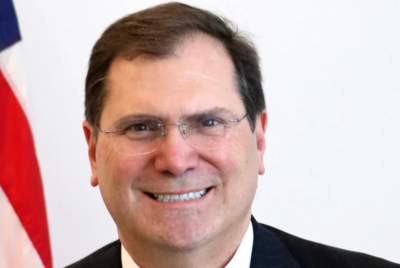Reconciliation Is Underway in Tanzania
After a rare moment of unrest shook the country's long-standing calm, Tanzanians now watch their leaders focus on healing divisions, empowering youth, and renewing the country's promise of stability

The world was caught by surprise when the first images of violence following Tanzania's elections emerged on 29 October. A nation long regarded as one of East Africa's most stable countries suddenly appeared shaken. As protesters took to the streets in several major cities during the elections, rallied by opposition leaders, violence erupted. Known for being historically peaceful and a mediator in the region, this political unrest is a far cry from Tanzania's track record. Early reports from the ground have suggested that most of the unrest may have been more coordinated than initially assumed, rather than entirely organic or spontaneous. With an investigation into the unrest now underway and the 13th parliament inaugurated, President Samia Suluhu Hassan now seems to be turning the page on a difficult moment in the country's recent history.
As her government resumes its work, President Hassan has appointed a largely new cabinet (retaining only the Mining and Foreign Ministers) in a gesture aimed at calming political tensions and demonstrating a commitment to political renewal. By appointing a new mix of both experienced and young leaders, the President seeks to showcase her new term is radically different and even more ambitious.
In the spirit of pragmatic policy, former Finance Minister, Mwigulu Nchemba, has been named Prime Minister, underscoring the administration's intention to keep economic growth at the centre of its agenda. Under his stewardship, Tanzania recorded close to 6% annual GDP growth in the previous term.
With a median age of just 17.5 years, Tanzania is one of the youngest countries in the world. This demographic reality represents both a profound opportunity and a pressing policy challenge for Tanzania. Many of the protests that followed the election were driven by younger Tanzanians who feel excluded from economic and political life, due to perceived sustained inequalities and lack of opportunities for the next generation. However, some accounts from the ground indicate that not all individuals involved were local youths, adding nuance to the initial perception of a solely grassroots movement.
Recognising this deficit, the President has created a new ministry dedicated solely to youth issues and will appoint special advisers for youth affairs at the highest levels of government. This ministry will be charged with implementing reforms that deliver opportunity, security and a voice for the next generation.
With projected GDP growth for this year of 6% and inflation well within the central bank's target range, Tanzania is rightly considered an economic success story. However, as in many successful developing countries, living standards still create frustrations.
Understanding the tensions that exist in the country following the elections, the President acknowledges that trust must be rebuilt through tangible action. Her administration will launch ambitious programmes to expand rural infrastructure, improve cross-country rail connections and extend energy networks. These efforts aim to improve market access and empower rural communities.
While media coverage has mostly focused on recent domestic challenges, one must not forget the important role that Tanzania plays in bringing peace and stability to the region.
In the years after independence, the country opened its doors to refugees from neighbouring conflicts and became a sanctuary for those fleeing war. Morally resolute, Tanzania has built a reputation for principled leadership, stability, and peace. As of today, Tanzania continues to host large refugee populations, including more than 210,000 people from the Democratic Republic of Congo and Burundi, according to the UNHCR 2025 census.
Its international peace-keeping record is equally notable. Tanzania remains one of Africa's most active contributors to United Nations peacekeeping operations, with over 1500 deployed across six UN peacekeeping missions in 2025. In 2013, Tanzanian troops played a critical role within the UN's Force Intervention Brigade in the eastern part of the Democratic Republic of the Congo, helping to deter the advance of armed groups in the Kivu region and protect civilians.
This participation is indicative of a country with a strong institutional capacity for regional leadership.
Tanzania's impressive internal cohesion has also distinguished it in a volatile neighbourhood. The country has largely avoided the ethnic and religious fractures that have destabilised several of its neighbours, owing in part to deliberate nation-building policies pursued since independence.
With its long history of hosting refugees, its contributions to peacekeeping and its reputation as a steady regional presence, Tanzania now faces an opportunity to reassert its role as an anchor of peace and development in East Africa. Emerging reports from within affected communities suggest that external influences may have played a role in fuelling some of the recent unrest – another reminder of why Tanzanian stability matters for the wider region.
President Hassan articulated that aspiration clearly when she remarked: "We are not enemies with anybody. We respect the views of those we do not agree with, even as we continue to defend ours as a responsibility passed down from our forefathers." That ethos, so central to Tanzania's success as a nation, will be translated into more inclusive politics and transparent governance and help it emerge from this difficult moment.
This dark month for all Tanzanians should be viewed as a blip, not a turning point. Tanzania's history is one of peace, collaboration and progress. It's time to move forward.
© Copyright IBTimes 2025. All rights reserved.





















